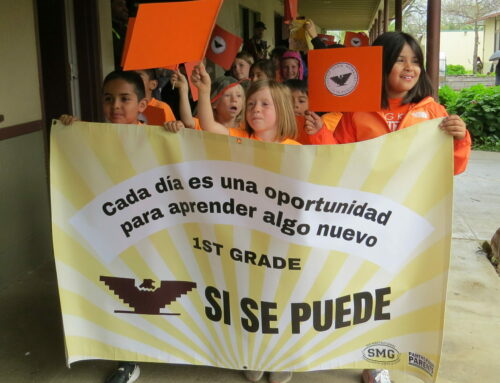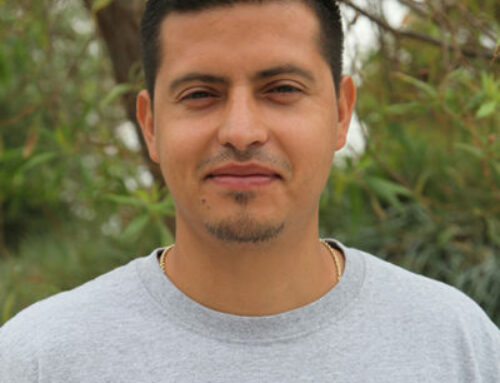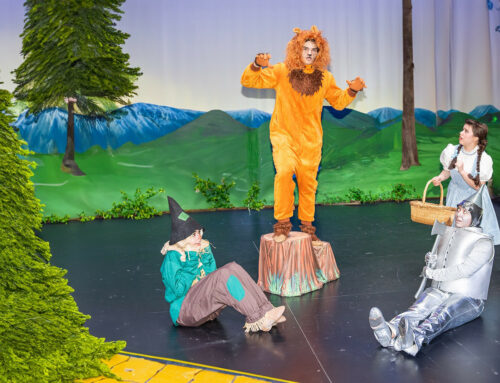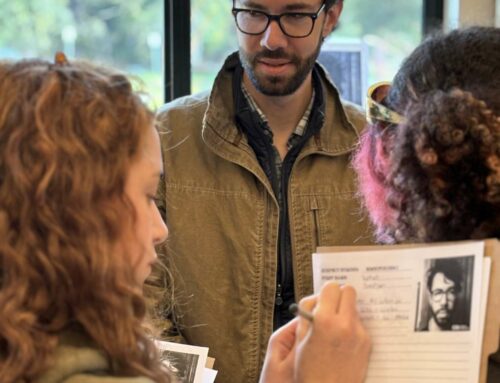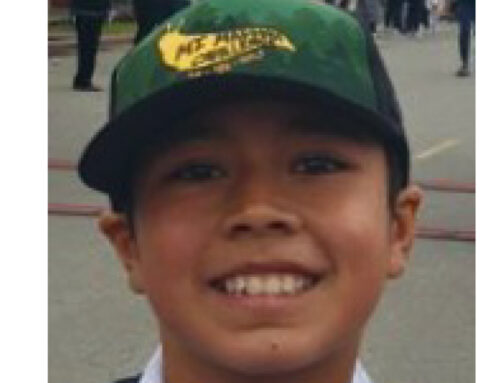VRC provides computers, Internet connection to help students achieve
Published in the December 6 – 19, 2017 issue of Morgan Hill Life
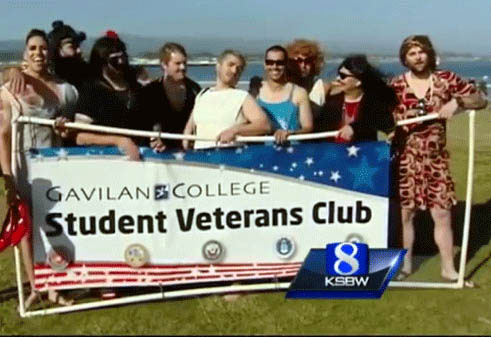
Members of the Gavilan College Student Veterans Club who walked in drag to raise money for Monarch Services in the spring of 2016.
Morgan Hill Life file photo
When men and women come out of years serving their country in the military, they often face the challenges of adjusting back to the less structured world of civilian life. Some of the approximately 125 vets who attend Gavilan Community College find a place of hope and help at the Gilroy campus’s Veterans Resources Center.
Many of Gavilan’s student veterans have a maturity gained from training in the Army, Air Force, Navy or Marines. It can help them excel with their classroom performance. But some veterans also are challenged because of the lack of structure, said Dewitt Stuckey, the Veterans Resource Center counselor.
“You have the veterans who are very disciplined. You tell them the assignment is due on a certain date and they’re already on it — boom, boom, boom — they submit it and it’s over and done,” he said. “And then you have the veterans who are so used to structure in their (military) environment such as when they can go to the restroom, when they can sleep and when they can eat. Once they leave the military, they don’t have that anymore, and it’s kind of hard to formulate that themselves. So, they need extra assistance in terms of time management and maybe some motivation — a kick in the butt opportunity.”
Located in the same building as the library, Gavilan’s VRC provides laptop computers, printers, and Internet connection to help the students achieve academic success. They can enjoy snacks or just hang out and chat with other students who served in the military.
Gavilan veterans can receive extra assistance at the center in how to tap into campus resources such as tutoring and help on what classes to take to earn their degree. They also get help in finding ways to pay for their college education, including assistance through the federally-funded G.I. Bill.
“For various reasons, not all the vets come through the Veterans Resource Center,” Stuckey said. “For some vets, after they’re done with the military they don’t want to be associated with the military anymore. They want to do their own thing. Occasionally, they come in and get an educational plan or whatever they need and be on their way.”
Among the veterans who take advantage of the VRC is Raymond Lopez, a nursing school student at Gavilan and the president of the campus’s chapter of the Student Veterans of America club. He served in the Marine Corps loading explosives on aircraft as an aviation ordnance specialist from 1996 to 2007. The center helps the veterans join in a friendly, nonjudgmental environment.
“It’s our only little area where veterans can come and relax and mingle with other veterans,” Lopez said. “For a lot of people transferring from the military atmosphere into the college atmosphere or to the civilian realm, it’s very tough. So, you give them a place of comfort where there are people like them who can help them transition a little easier. That’s our place.”
The club members often do social events such as driving in the VFW van to San Jose to watch a boxing match. They also put on an annual fundraiser in spring to raise money for shelters in Santa Cruz and Hollister that help women of domestic violence or rape.
“Sometimes we’ll dress up in full drag,” Lopez said. “We do it for the Walk a Mile in Her Shoes nonprofit organization. The walk is in high heels if you’re going to do the walk. But we put a little spice into it (in women’s dresses) so we can make extra money.”
Not only can veterans use the VRC but also their dependents such as spouses, children and siblings, he said.
“They are a part of the veteran too, and we truly believe that. The family always takes on sacrifices as well, and nobody sees that,” Lopez said. “Nobody understands like they do how much the veterans really put on the line. Those families, those wives, those kids who have missed their dad for so many months, they suffered, too.”


